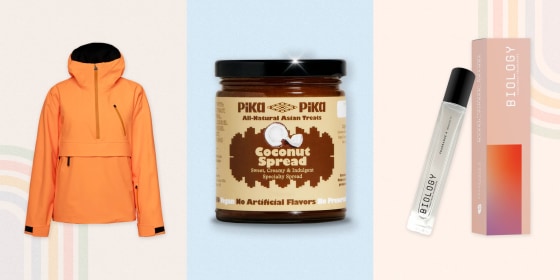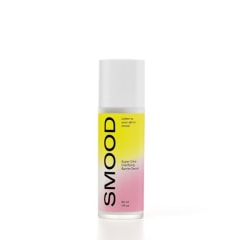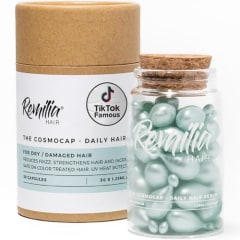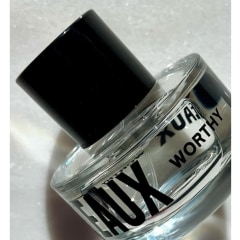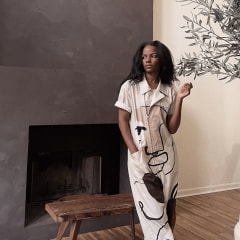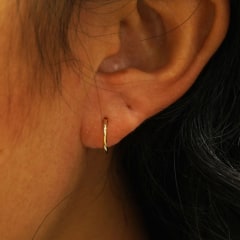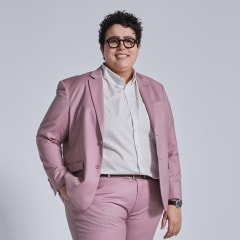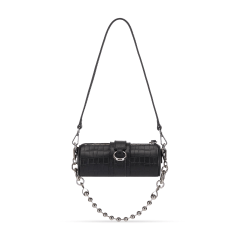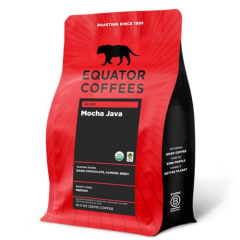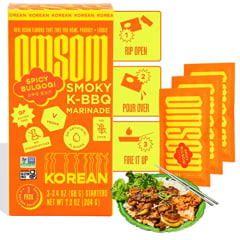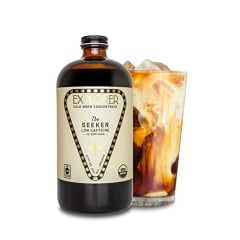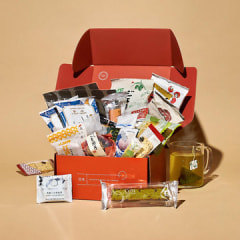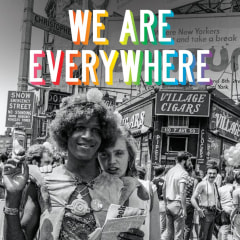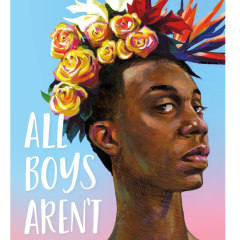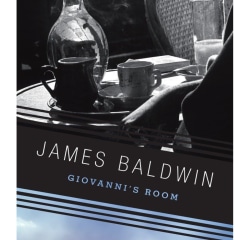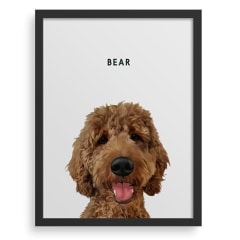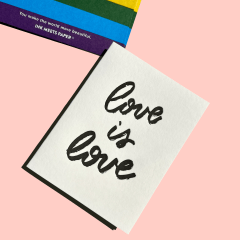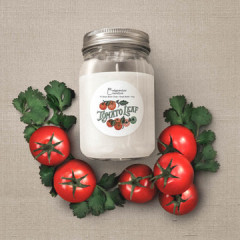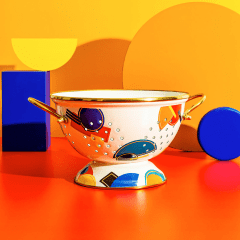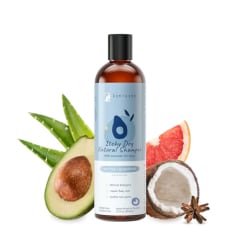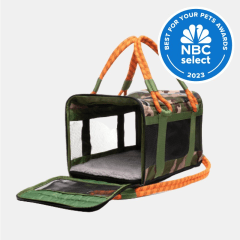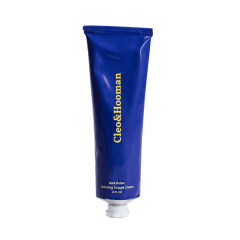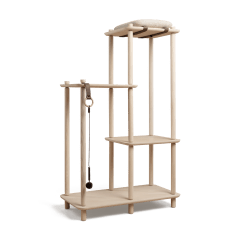Pride Month serves as a reminder of the progress made for LGBTQ+ representation worldwide, and is a special opportunity to highlight LGBTQ+ owned businesses. Helping shoppers learn about these companies encourages support beyond the month of June, especially when visibility is more important than ever: Even though more than 50 years have passed since the Stonewall uprising, discriminatory anti-LGBTQ+ legislation and backlash against major companies for their LGBTQ+ representation are rising at an alarming rate.
“Queer entrepreneurs are going to look at the world differently because the world is not always a safe or kind place for us,” says Helen Russell, a co-founder of Equator Coffees. “Increased exposure for these brands can mean new allies, not just new customers.”
We spoke to Russell and several other LGBTQ+ entrepreneurs to learn more about the successes and challenges they face while running their companies. We also rounded up our favorite LGBTQ+ owned brands to shop from, and notable products we think you should know about.
SKIP AHEAD Beauty brands | Clothing and accessories brands | Food and beverage brands | Books and education brands | Home and kitchen brands | Pets brands
LBGTQ+ owned brands to shop
The National LGBT Chamber of Commerce (NGLCC) is a nonprofit organization that serves as the third-party certifying body for Certified LGBT Business Enterprises (LGBTBEs). It’s certified over 2,000 LGBTBEs to date, and estimates that there are 1.4 million companies run by members of the LGBTQ+ community in the U.S.
That said, concrete data about how many LGBTQ+ owned companies there are in the U.S. is scarce — federal agencies like the Small Business Association, Census Bureau and Bureau of Labor Statistics don’t have data on LGBTQ+ owned businesses and aren’t actively collecting it the same way they are for AAPI- or Latino-owned companies, for example. That’s why organizations like the NGLCC step in to fill in the gaps, as do individuals like Charlie Sprinkman, who created the Everywhere Is Queer map to illustrate the global spread of LGBTQ+ owned businesses across the planet.
LGBTQ+ owned businesses are defined as being at least 51% owned, operated, managed and controlled by a person(s) who identify as part of the LGBTQ+ community (including non-binary and gender non-conforming individuals), according to the NGLCC. To create the business directory below, we connected with over 90 LGBTQ+ owned brands and confirmed their ownership status.
LGBTQ+ owned beauty brands
Byoma
Marc Elrick is the founder and CEO of Future Beauty Labs, which owns skin care brands like Tan Luxe, Tanologist and Isle of Paradise. He got his start in cosmetics to promote inclusivity and celebrate individuality. “Beauty and how it makes you feel should be the most inclusive and supportive community,” says Elrick. “Gay culture and the beauty industry have been intertwined for basically forever helping to define trends — [and] as a gay founder, I’m lucky to have the opportunity to drive that inclusivity even further, and give credit where credit is due.” Byoma, one of the many beauty brands founded by Elrick, is a skin care brand that offers serums, moisturizers, toners, cleansers and more that repair the skin’s moisture barrier.
Remilia Hair
While working in the skin care industry, Eliran Luzon realized how oversaturated the market felt. Hair care, on the other hand, seemed like an afterthought in comparison, so he started Remilia Hair. “Hair has always been an important way for me to express myself,” says Luzon. “I went through so many phases and styles, but full, healthy hair meant confidence, and when I started to notice my hair thinning around the age of 27, I knew I wanted to create effective products that improve hair health.”
Remilia Hair offers shampoo, conditioner and a hair mask, all of which are filled with ingredients that make hair stronger. The brand’s first product, and a best seller to this day, is The Cosmocap, an encapsulated hair serum that reduces frizz and breakage while boosting shine. It also doubles as a heat protectant. Individual doses of serum are packed inside little biodegradable pods, making them easy to travel with.
Moodeaux
Moodeaux is an award-winning fragrance brand that focuses on inclusive marketing and the connection between scents, emotion and memory. Brianna Arps, a former investigative journalist, launched Moodeaux in 2021 as a way to challenge the lack of representation among Black-owned fragrance brands while exploring how fragrances can affect moods. The brand currently has two scents: Worthy, which has notes of white tea, orange blossom, red rose and lavender; and Punkstar, which smells like apple, black currant and raspberry. If you’re unsure about which one to get, the brand also has sample sizes and travel sizes.
Smood
This gender-neutral skincare brand has a mission to help individuals with sensitive and acne-prone skin feel confident and beautiful. “You are beautiful, regardless of what your skin looks like,” says Andrew Lau, Smood founder. “Our tagline, ‘Listen to your skin’s mood,” means treating your skin gently and appropriately, depending on its condition.”
Lau struggled with acne for over a decade, trying all kinds of over-the-counter and prescription remedies. “Most of them felt harsh, clinical and uninspiring,” he says. “There were days I wouldn’t leave the house because I didn’t want to be seen.” He credits his Korean grandmother with the solution: Focusing on hydration and protecting the skin barrier, while incorporating traditional Korean skincare ingredients. Smood offers a full line of cleansers and moisturizers, plus a new Super Cera Clarifying Barrier Serum.
LGBTQ+ owned clothing and accessories brands
Automic Gold
Al, Automic Gold’s non-binary founder and designer, couldn’t find affordable, size-inclusive fine jewelry that wasn’t too masculine or feminine, so they started making their own. All of the brand’s jewelry is genderless, and it’s made in-house from locally sourced reclaimed materials. Automic Gold offers bracelets, rings, necklaces and earrings, as well as charms and body jewelry.
Kirrin Finch
As Laura and Kelly Moffat, self-described tomboys, searched for clothes for their wedding, they realized how difficult it is to find wedding dress alternatives. This reinforced decisions they’d both had to make throughout their lives. Laura Moffat, the brand’s director of marketing, says growing up, she and her wife were “often forced to make the choice between poorly-fitting menswear and super feminine womenswear.”
After speaking to women, transgender men and non-binary folks, she found that many felt like their clothes didn’t allow them to fully be themselves. Moffat and her wife quit their jobs to start the clothing company Kirrin Finch, which “aims to fill the gap for gender-defying fashion by creating menswear-inspired apparel designed to fit a range of bodies,” she says. Kirrin Finch has a variety of gender-defying clothing items, including pants, vests, jackets and suits.
Private Policy
Private Policy is a genderless clothing company founded by Haoran Li and Siying Qu, two graduates of Parsons School of Design in New York City. Inspired by the youth culture in New York, the pair design clothes without the traditional menswear and womenswear labels. Since launching in 2015, the brand has secured collaborations with Coca-Cola, Casetify and White Claw. Private Policy makes gender fluid tops, dresses, jackets, bags, accessories and more.
Souk Bohemian
Souk Bohemian founders Vanessa Vernon and Morgan-Ashley Bryant created the brand in 2016 after visiting Morocco, where they were inspired by the rich culture, art and artisans they found in Moroccan markets, called “souks.” But most importantly, Souk Bohemian centers on being inspired by and crafted for women of color.
“There aren’t many people who look like us who own businesses and are able to have this kind of platform, so we take that very seriously,” says Bryant, “We understand that we’re telling them, ‘You can absolutely do something like this, there are other people in these spaces.”
Ultimately, seeing their products resonate with Black folks, especially women and members of the Queer community, is what it’s all about. “We understand why Pride is important for many, but we do this every day for our community,” says Bryant. “No matter what holiday or non-holiday it is, we live this life consistently and authentically.” Souk Bohemian sells a variety of clothing, including jackets, bags and dresses, as well as home goods like candle holders, dinnerware and decor.
LGBTQ+ owned food and beverage brands
Bokksu
Danny Taing, founder and CEO of Bokksu, started his company when he couldn’t find his favorite Japanese snacks in the United States. “As an Asian-American with deep roots in both identities, I saw a big opportunity to bridge the cultures and share Japanese culture with the world,” he says. Bokksu works with centuries-old snack-makers across Japan to curate the brand’s monthly subscription box, which comes with authentic snacks, candies and a tea pairing curated around a cultural theme.
As a gay Asian man, Taing says running his company “sometimes feels very daunting because many investors and partners don’t immediately relate to Bokksu and me.” However, he notes “being gay has also helped me find tightly-knit peers and support.”
Equator Coffees
Helen Russell and her partner Brooke McDonnell are the co-founders of Equator Coffees, which they’ve run together for over 25 years. According to Russell, Equator Coffees has been successful due to its supportive community, but she often finds herself worrying about homophobic legislation. “For me, knowing that there were places I was excluded from and people who wouldn’t see and respect my humanity drove me to create a brand that valued every person involved,” she says. “Coffee is such a connective and loved product that it can be a bellwether of a new way of doing business. Coffee farmers should be well paid and valued, baristas and roasters should thrive at work and cafes should be safe community spaces.” Equator Coffees sells bags of its blends, espressos and instant coffee, as well as brewing equipment like grinders, filters and mugs.
Explorer Cold Brew
Cason Crane doesn’t back down from a challenge: the 31-year-old adventurer has climbed Mt. Everest, ran over a dozen marathons and competed on USA Network’s adventure-competition series, Race to Survive. His biggest adventure, though, might just be launching Explorer Cold Brew, the readymade liquid coffee concentrate that comes in different caffeine strengths — strong, regular, half-caf and decaf. Each 32-ounce bottle makes 20 cups of cold brew and is sourced from fair-trade beans from Ethiopia or Peru.
“For me, coffee is adventure fuel,” says Crane. “It provides that precious ability to elevate our day and enhance our lives.” If java isn’t your thing, though, Explorer also offers three types of chai, flavor enhancements and functional elixirs to boost your mood. Explorer Cold Brew gives back to the LGBTQ community throughout the year. This June, the company will be raising $50,000 for organizations like The Trevor Project.
Omsom
If your idea of instant noodles comes in a styrofoam cup, it’s time to try Omsom’s line of all-natural noodles, with flavors like coconut lemongrass curry, soy garlic, chili sesame and garlic black pepper. Kim Pham, Omsom co-founder, says she started the company because she was tired of seeing Asian flavors bastardized or watered-down in American supermarkets. “We are often educating folks on the multitudes of Asian flavors and stories,” says Pham. “We welcome all who are down to rock with products made with cultural integrity.” The company’s name comes from the Vietnamese phrase “om sòm,” which means noisy or rambunctious” — it’s the kind of thing an exasperated parent would call an unruly child.
Pham runs Omsom with her sister, Vanessa — they’re both first-generation Vietnamese Americans. The brand’s flavors span the Asian world: In addition to Vietnamese lemongrass BBQ, the best-selling sauce bundle includes Korean bulgogi, Thai Krapow, Laotian larb and Japanese yuzu miso glaze. To nail those flavors, Omsom partners with Asian chefs and tastemakers.
LGBTQ+ owned bookstores and educational brands
A Seat at the Table Books
A Seat at the Table Books is an NGLCC-certified LGBTQ+ bookstore/cafe that serves as a crucial third space for queer folks and other marginalized populations in the Elk Grove, California region. While you can get popular books and bestsellers online and in-person, it’s more than just a bookstore: The location has an espresso bar, a play area for kids and a quiet room for nursing mothers, plus it hosts weekly events like open mic nights, book clubs and author talks. The bookstore recently launched its Sponsorship Program to save and prevent it from going out of business — the program gives monthly and annual sponsors exclusive perks, including private after-hour rentals and advanced copies of books.
All She Wrote Books
Located in Somerville, Massachusetts, All She Wrote Books is an independent bookstore that aims to celebrate and support underrepresented communities and voices with a specially curated selection of books that spans all genres. Christina Pascucci Ciampa founded the bookstore after feeling unrepresented by bookshelves. You can purchase books and audiobooks online and in-store.
Astoria Bookshop
Astoria Bookshop is an independent bookstore based in Queens, New York. It has a large selection of fiction, nonfiction and children’s books, and hosts book clubs, storytelling sessions and author talks, which often highlight local New York City writers and creatives. You can purchase books online, as well book-inspired gifts like tote bags, literary-themed candles and bookmarks.
BookWoman
BookWoman is a feminist bookstore located in Austin, Texas. It started in 1975 as a collective called The Common Woman Bookstore, which ultimately transformed into what is now BookWoman in 2008. The bookstore serves as a resource of inclusive books for the Austin community, as well as a host for book group discussions, author Q&As, poetry readings and more. You can purchase books through the online store or in-person.
LGBTQ+ owned home and kitchen brands
Darling Spring
Fast food, fast fashion — what’s the rush? Eril Serbetci and Banu Tangule’s housewares company, Darling Spring, is all about slow living and cherishing simple pleasures. They specialize in home decor, kitchenware, stationery and baby gifts by female artisans. “As designers by trade, [we know] being an independent female creative is challenging,” the duo says. “Our motive is to ultimately enable women creatives to find greater equity in their ventures.
West & Willow
After Ben Lebowitz’s mom drew a portrait of his dog, Zoey, he displayed it in his home to look at every day. It made him happy whenever he walked by it, and Lebowitz knew that other pet parents would feel the same about art featuring their cats and dogs. That led him to found West & Willow in 2019 out of his New York City apartment. The brand sells custom portraits, mugs, phone cases and other accessories, each of which is decorated with a digitally-illustrated image of your or your loved one’s pets. West & Willow also gives back to animal welfare organizations, including Best Friends Animal Society.
Ink Meets Paper
Ink Meets Paper’s motto is “Text less. Write more” — it’s exactly what founders Allison and Jamie Nadeau hope their brand’s greeting cards and paper products encourage people to do. The wife-and-wife team started learning about printing in 2008 when they bought their first printing press and set up their studio. From there, the Nadeau’s started designing greeting cards, invitations, postcards, art prints and more, as well as debuted their signature envelope, which has a hidden message inside. While Ink Meets Paper ships its products nationwide, it’s based in Greenville, South Carolina, which is where the team makes all their products.
Edgewater Candles
“We want to brighten our community, and lighting a candle is the first step,” says Mark Towns and Stephan Pearlman, founders of Edgewater Candles. They opened their store in 2022 in Edgewater’s Bryn Mawr District, and share fragrances with their community, as well as collaborate with other artisans in the neighborhood and host candle making classes. Towns and Pearlman make their candles in recyclable mason jars with soy wax, non-toxic fragrances and cotton wicks. They’re available in over a dozen scents, including Cardamom Chai, Tomato Leaf and Rosemary Mint. Edgewater Candles also sells fragrance-based products like incense, room and linen sprays, hand soap and bath salts.
LGBTQ+ owned pets brands
Cleo&Hooman
While caring for their dogs, Louie Marte and Michael McLafferty had a hard time finding grooming products that met their pets’ specific needs. Marte’s Frenchie, Cleo, suffered from allergies and sensitive skin, while McLafferty pups’ active lifestyles meant they needed something long-lasting and protective. Marte and McLafferty’s experiences prompted them to found Cleo&Hooman in 2024, which offers gentle grooming essentials developed with veterinary professionals. The brand’s product line includes Bark Butter, paw wipe, paw cleanser and a 2-in-1 shampoo and conditioner, all of which are free from harsh chemicals and allergy-friendly.
Kin+Kind
As a kid, Thomas Ling, founder of Kin+Kind, was a self-described “pet-store junkie” — he spent so much time with the animals that the owner eventually gave him a job. At home, his family had a veritable menagerie of dogs, birds, lizards and nearly two dozen rabbits.
As an adult, Ling put aside a career as a corporate lawyer to transform his personal passion into a line of pet care products that’s vet-approved and mixed by hand. Everything sold by Kin+Kind — including shampoos, supplements, eardrops, flea and tick solutions and even non-toxic pee-and-stain removers — is organic, environmentally friendly and ethically-sourced.
“I’m enormously proud of where we are today,” says Ling. “Our journey started in the basement of a small pet store and has grown to a global brand delivering clean petcare to countries around the world.”
Papuk
Toronto-based designer Vazken Karageozian was looking for a cat tree for his fur babies, Grayson and Ella, but was underwhelmed by what was available. So he started Papuk, which is gaining a following for its “human-friendly” cat furniture. (“Papuk” means “soft and fluffy” in Karageozian’s native Armenian.)
Papuk’s pieces are pet-first but “seamlessly integrate with the interior design of modern homes,” says Karageozian. For example, the Connect Collection tree is made of ash wood and can be personalized with cushions, scratch pads and other attachable accessories. As the company grows, he plans on adding new materials, colors and finishes to allow more customization. There’s also the possibility of a cat cafe, where visitors can touch the products — and maybe pet the felines.
Roverlund
Whether you’re flying across the country with your pet or bringing them to the vet, safety comes first — but that doesn’t mean you have to sacrifice style. Roverlund sells chic, reliable pet travel products, including some of our favorite carriers for cats and dogs. All of the brand’s items are made to keep pets comfortable in transit, and they come in bold colors and patterns like camouflage with orange or magenta accents. Beyond travel carriers, Roverlund offers a travel crate, carry-on luggage, dog poop holder and pet food storage kit.
Why trust NBC Select?
Mili Godio and Zoe Malin are, respectively, the updates editor and associate updates editor at NBC Select. Dan Avery is an editor at CNBC Select. To write this article, they connected with dozens of businesses to confirm that they’re at least 51% LGBTQ+ owned. Godio, Malin and Avery also rounded up notable products from LGBTQ+ owned businesses across shopping categories.
Catch up on NBC Select’s in-depth coverage of personal finance, tech and tools, wellness and more, and follow us on Facebook, Instagram, Twitter and TikTok to stay up to date.
